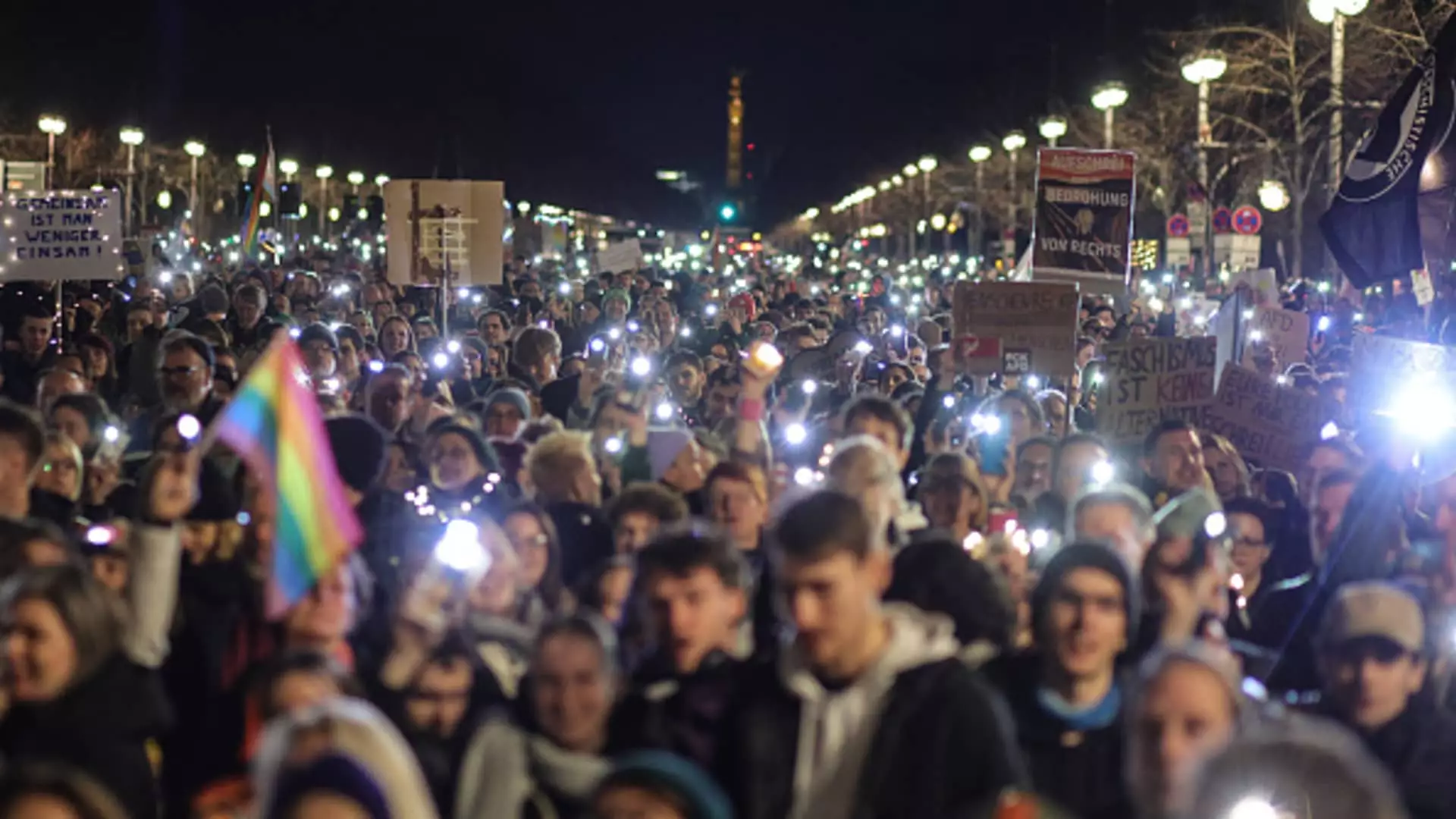In a significant display of dissent against the far-right Alternative for Germany (AfD) party, tens of thousands of citizens made their voices heard across Berlin and various other German cities on Saturday. This wave of protests occurs just weeks ahead of the general election scheduled for February 23. Demonstrators gathered at iconic locations, including the Brandenburg Gate, where the atmosphere was charged with energy as chants filled the air, accompanied by the sound of whistles and vibrant anti-fascist songs. This grassroots mobilization has emerged from a deep concern over the normalization of anti-immigrant rhetoric and the political maneuvering of the AfD in German society.
Activists seized the opportunity to not only rally against the AfD but to shed light on rising far-right ideologies across Europe and the American political landscape under President Donald Trump. Luisa Neubauer, a prominent member of the Fridays for Future climate initiative, voiced her apprehension, stating, “Those who fuel racism and attack climate protection are not just campaigning; they are endangering lives.” This sentiment resonated within a crowd that police estimated to include 35,000 attendees in Berlin alone, underscoring the multifaceted threats perceived in light of the upcoming elections.
The backdrop of these protests is fraught with political turbulence in Europe’s largest economy. Following the collapse of Chancellor Olaf Scholz’s three-party governing coalition late last year, the nation’s political landscape has been shaken by debates surrounding economic revitalization amid stagnation and social divides. As tensions escalate, discussions surrounding migration policies have become pivotal, further inflaming the rhetoric utilized by both the AfD and mainstream parties.
The same day as the protests, the AfD officially kicked off its electoral campaign in Halle, where party leader Alice Weidel addressed a crowd of approximately 4,500. Notably, Elon Musk’s remote endorsement of the AfD has sparked controversy, cascading into heated debates within German society and polarizing existing sentiments towards the party. As the election approaches, mainstream political entities, including the central-right Union bloc, remain firm in their resolve to exclude the AfD from any collaborative governance efforts.
Friedrich Merz, the Union bloc’s chancellor candidate, is reported to feature migration policy prominently in his election agenda. However, his intentions to propose tougher migration measures are shadowed by the risk of inadvertently aligning with the AfD if his motions garner their support in Parliament. While he firmly camps on the idea of barring undocumented entries and boosting deportations, the ethical implications of these strategies continue to raise eyebrows and could unravel longstanding commitments to distance from extremist affiliations.
As Germany prepares to head to the polls, the clash between progressive values and extremist ideologies intensifies, demonstrating a country at a crossroads, grappling with its identity amidst calls for unity against the tides of extremism.


Leave a Reply